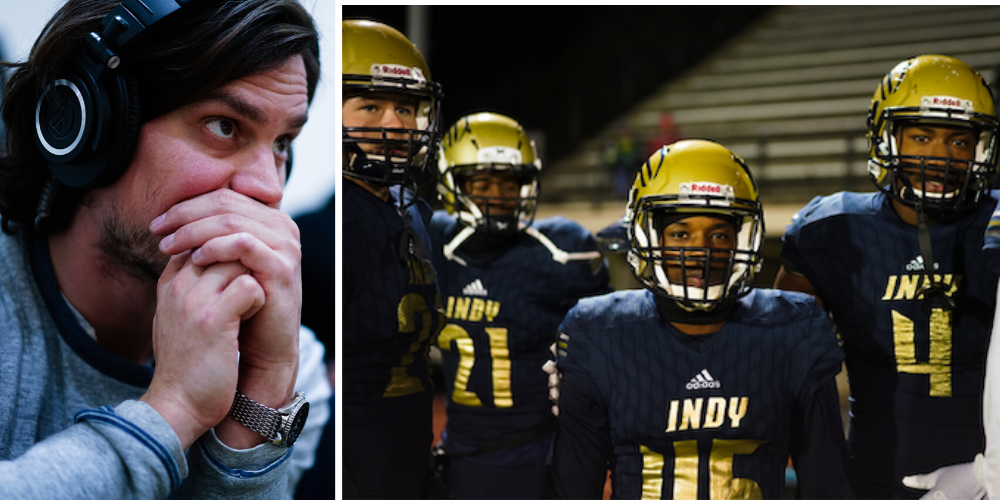
Daniel McDonald MFA ’17 pulls no punches when asked how he rose from an entry-level job on a docuseries to directing and producing episodes and qualifying to join the Directors Guild of America (DGA). “Luck,” he says. “The truth behind success is that there’s a great deal of luck involved in getting there.”
But, he adds, “you need to work hard and put yourself in a position to take advantage of luck when it presents itself.”
First came hard work in grad school, which earned him an SFTV Award when he completed his master’s in film and TV production. A few months later came luck: Producers of Netflix’s Last Chance U contacted two of his former professors to ask for names of recent alums who qualified for a post-production gig. Both of them recommended McDonald, who got the job after binge-watching the first two seasons to prepare for his interview.
More hard work followed. Last Chance U follows young, mostly minority athletes who play football at community colleges with dreams of making the leap to four-year schools. As an associate producer, McDonald logged hours and hours of raw footage and assembled string-outs that helped story producers and editors put together each episode. “Logging footage is drudgery, but it’s extremely important drudgery for a docu-series. The storylines are developed and built during editing,” McDonald says.
Luck came again in the form of colleagues who encouraged him to contribute during story meetings. “When I worked up the courage to speak up and pitch scenes and storylines I was seeing in the footage, no one objected,” McDonald notes. By the end of his first season with the show, he was given a few scenes to edit; later he was one of two main editors of an entire episode; by the following season he became a field producer and earned his first professional directing credit.
Today McDonald wears many hats on the program. As a director, he works with series creator Greg Whiteley to manage the shoot’s look, feel, and tone. As a producer, he ensures that the crew is in the right places at the right times, and synthesizes input from the director of photography, sound mixers, and producers. And as an editor, he shapes episodes into cohesive stories and ensures that each one contributes to the overall arc of the season. That means having conversations with colleagues about which storylines and characters to emphasize, and which scenes best tell those stories. “TV is a collaborative medium, and learning how to litigate your viewpoints forcefully and respectfully is critical,” he says.
McDonald says LCU’s strength comes from a high degree of trust between the subjects and the show’s producers. “We’re not working with reality-TV cast members,” he says. “They’re student-athletes, mostly people of color from underserved communities, who’ve graciously allowed us into their lives. It’s important that we listen to them so we can attempt to understand and empathize with them, which helps us capture the moments that illustrate fundamental truths about them. That’s my favorite part of this job; I feel a strong connection to the people we document.”
He credits SFTV with giving him the tools to flourish. “It gave me a safe, encouraging place to learn to take myself seriously as a filmmaker,” he says. “Plus I gained so many practical skills that have been invaluable, especially the fundamentals of editing. That knowledge made me a better filmmaker.”
Graduate school and experience have also taught him that attitude is everything. “Never complain about what you’re doing—many people will jump at the opportunity to do a job you think is ‘beneath’ you,” he says. ”Be bold when it’s appropriate, and be quiet when you should be. And don’t think that anything is owed to you—it isn’t.”



